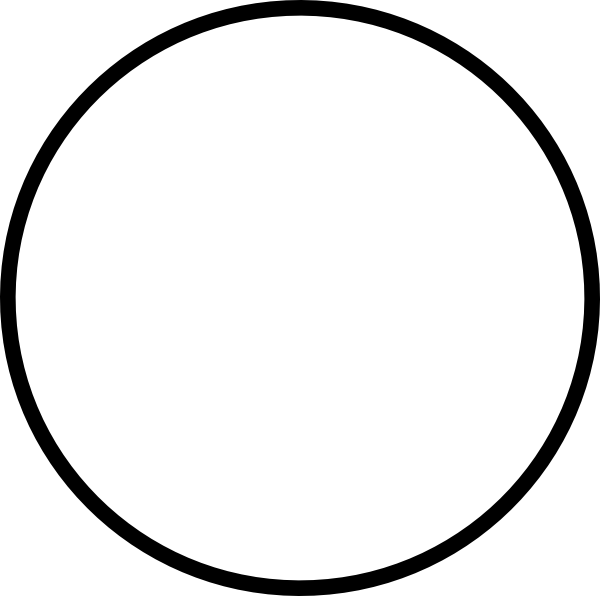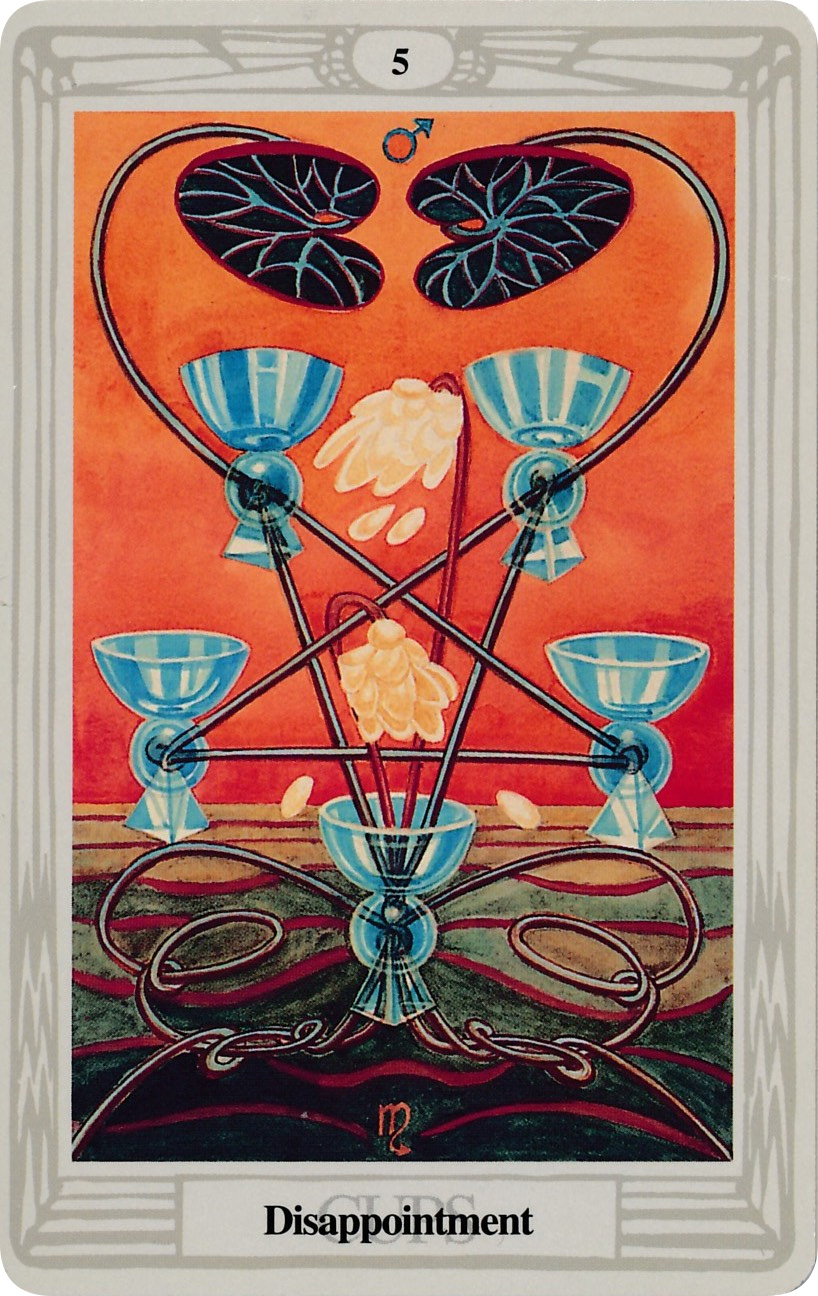The Five of Cups
The Lord of Loss in Pleasure;
Disappointment
A White Radiating Angelic Hand, holding lotuses or waterlilies,
of which the flowers are falling right and left. Leaves
only, and no buds, surmount them. These lotus stems ascend
between the cups in the manner of a fountain, but no water
flows therefrom; neither is there water in any of the cups,
which are somewhat of the shape of the magical instrument of
the Zelator Adeptus Minor.
Above and below are the symbols of Mars and Scorpio for the Decan.
Death, or end of pleasure: disappointment, sorrow and loss in those things from which pleasure is expected. Sadness, treachery, deceit; ill-will, detraction; charity and kindness ill requited; all kinds of anxieties and troubles from unsuspected and unexpected sources.
Geburah ofה (Disappointment in love, marriage broken
off, unkindness of a friend; loss of friendship).
Herein ruleלוויה and פהליה .
• • •Above and below are the symbols of Mars and Scorpio for the Decan.
Death, or end of pleasure: disappointment, sorrow and loss in those things from which pleasure is expected. Sadness, treachery, deceit; ill-will, detraction; charity and kindness ill requited; all kinds of anxieties and troubles from unsuspected and unexpected sources.
Geburah of
Herein rule
“This card is ruled by Geburah in the suit of Water. Geburah being fiery, there is a natural antipathy. Hence arises the idea of disturbance, just when least expected, in a time of ease.
The attribution is also to Mars in Scorpio, which is his own house; and Mars is the manifestation on the lowest plane of Geburah, while Scorpio, in its worst aspect, suggests the putrefying power of Water. Yet the powerful male influences do not show actual decay, only the beginning of destruction; hence, the anticipated pleasure is frustrated. The Lotuses have their petals torn by fiery winds; the sea is arid and stagnant, a dead sea, like a “chott” in North Africa. No water flows into the cups.
Moreover, these cups are arranged in the form of an inverted pentagram, symbolizing the triumph of matter over spirit.
Mars in Scorpio, moreover, is the attribution of the Geomantic figure Rubeus. This is of such evil omen that certain schools of Geomancy destroy the Map, and postpone the question for two hours or more, when Rubeus appears in the Ascendant. Its meaning is to be studied in the “Handbook of Geomancy” (Equinox Vol. I, No.2).”
— Crowley, The Book of Thoth

